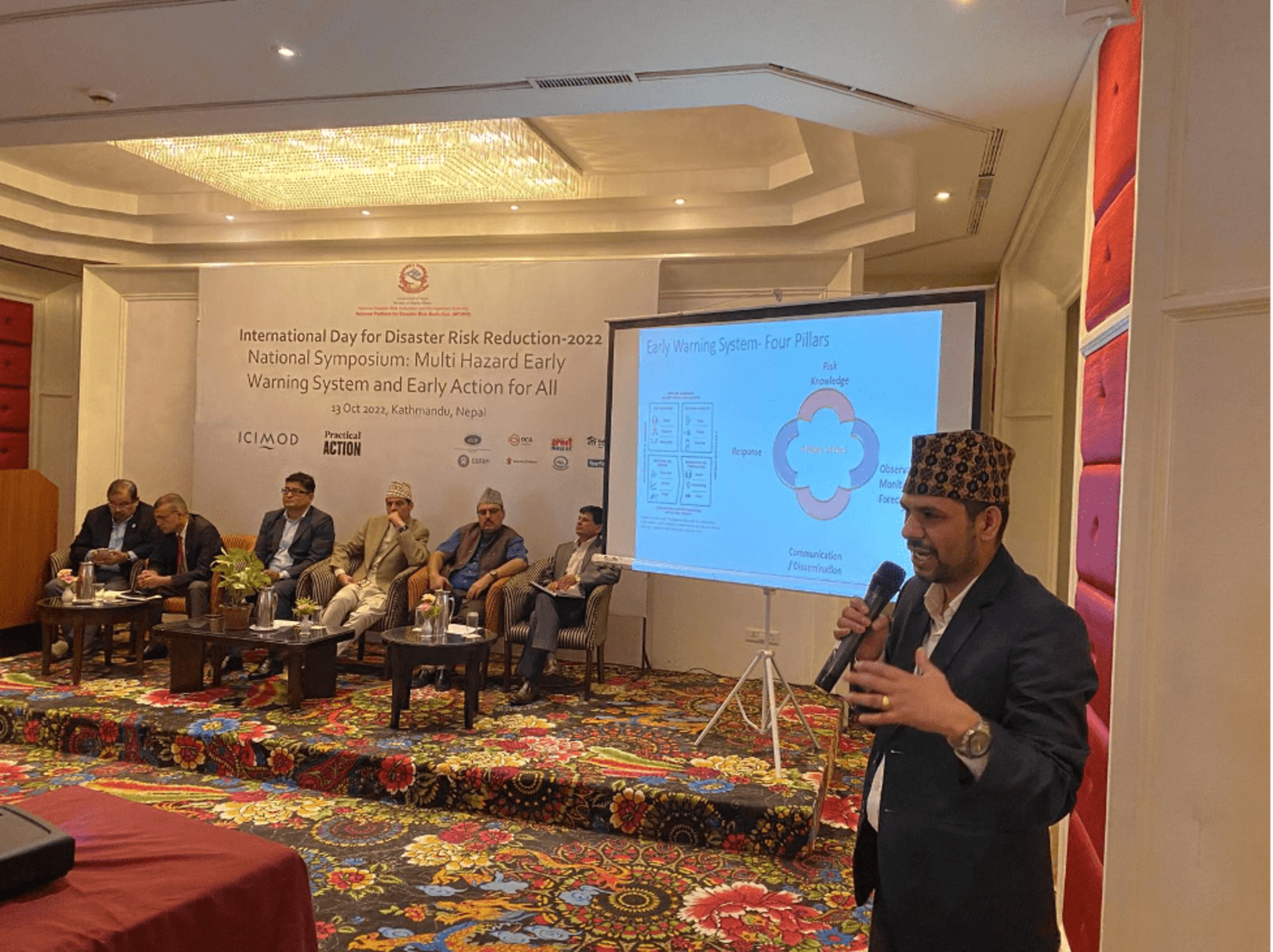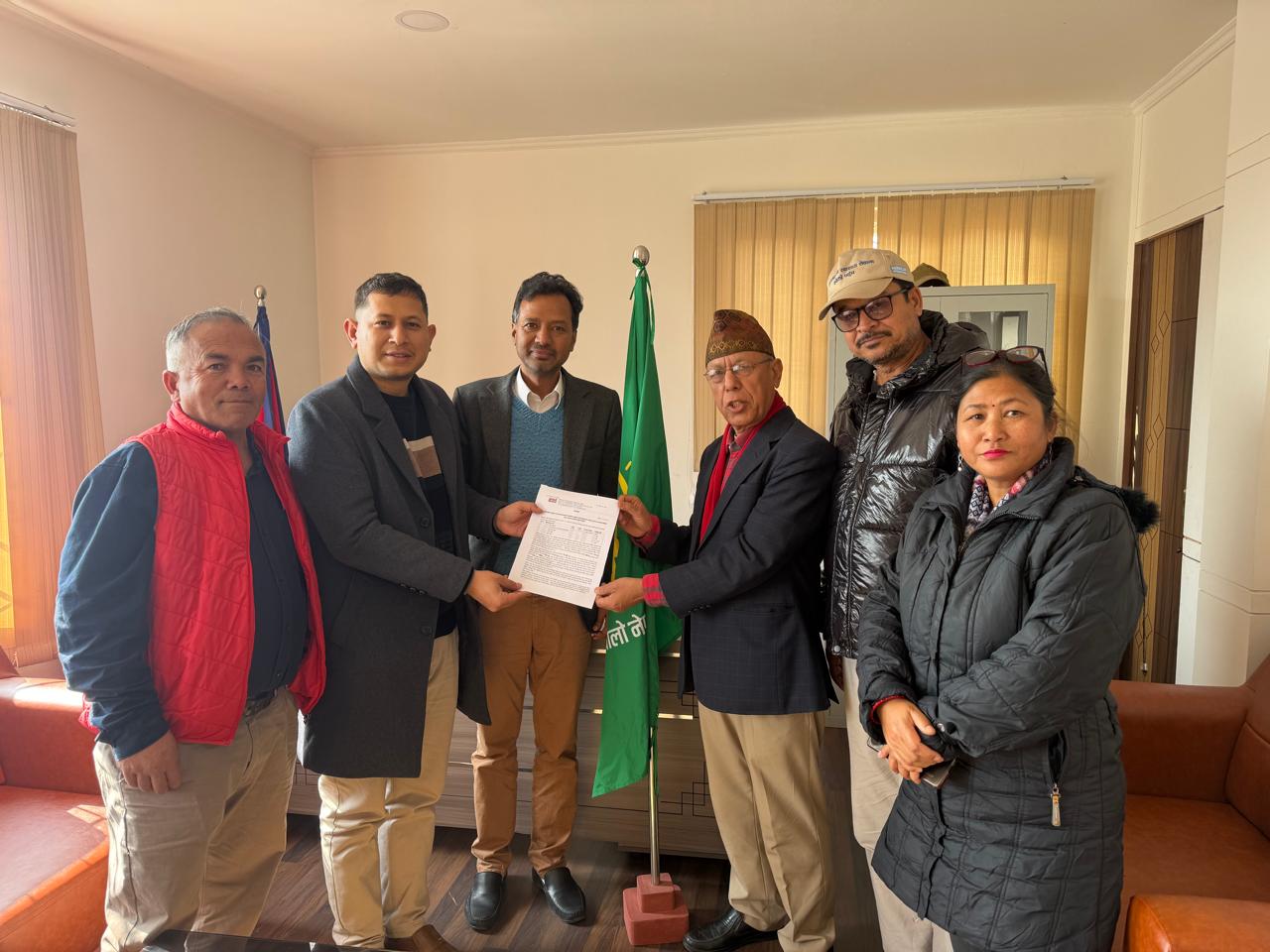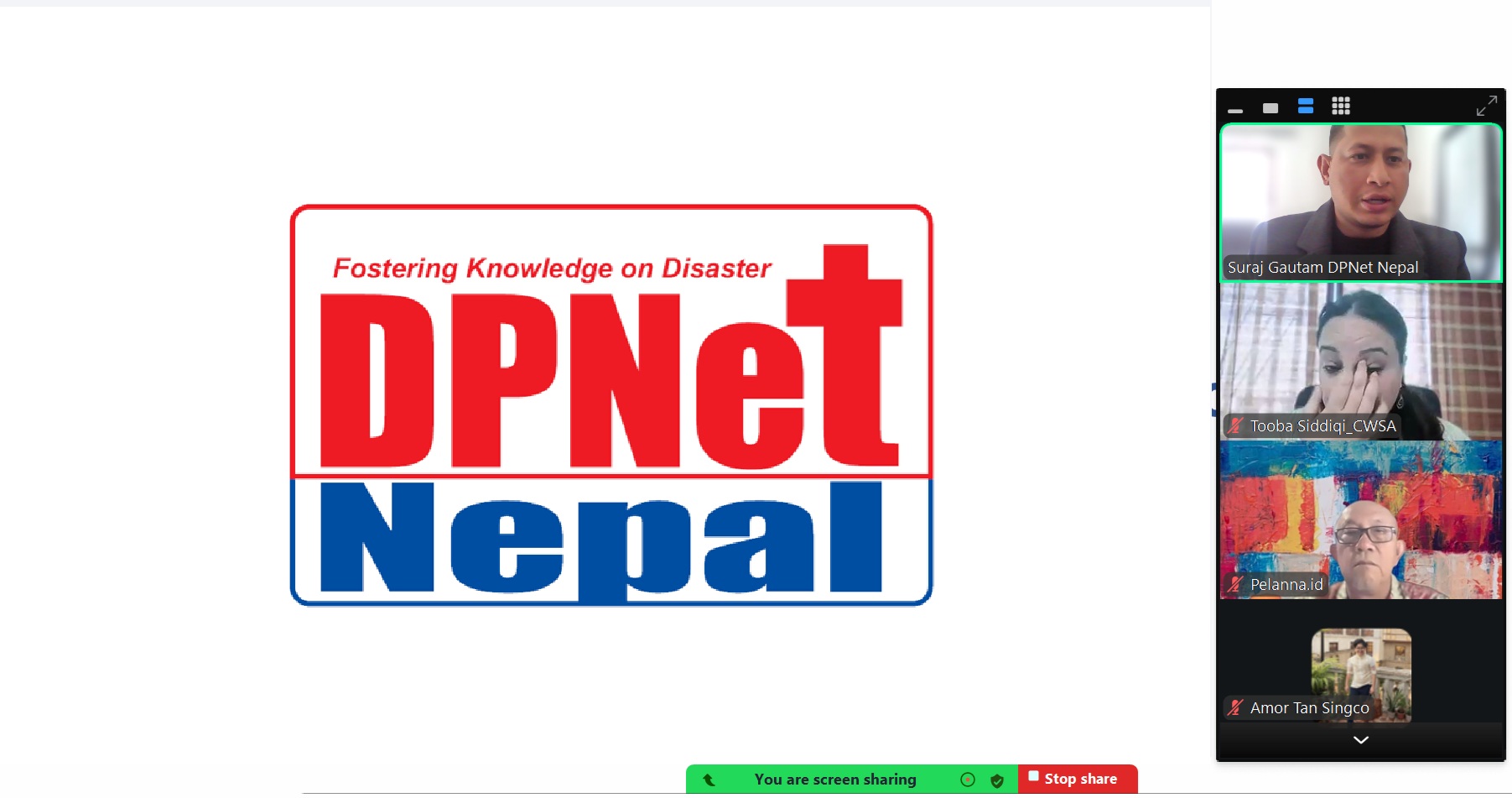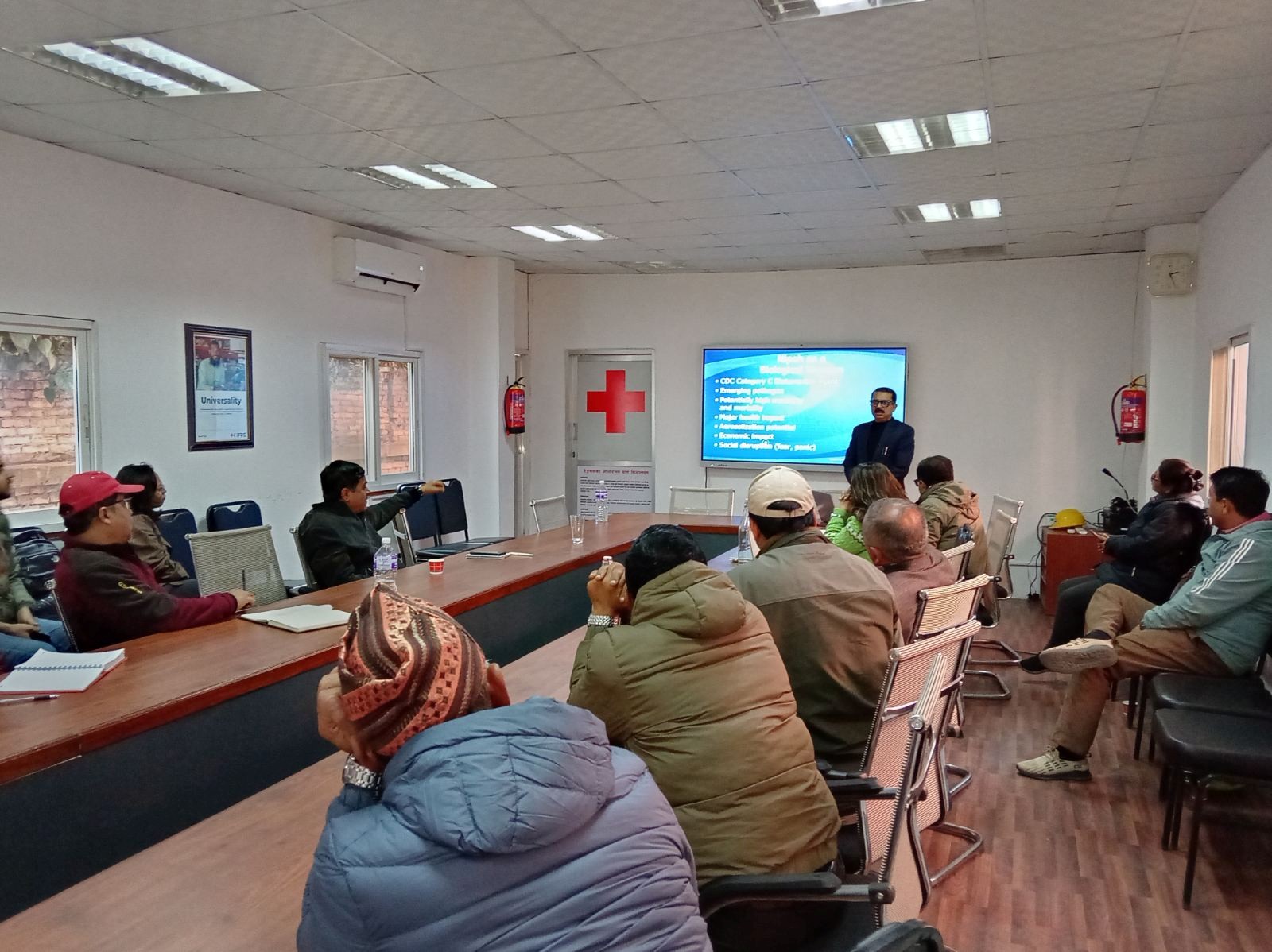IDDRR Celebrated in Nepal

On October 13th, 2022, the International Day for Disaster Risk Reduction was observed with a focus on the theme "Multi-Hazard Early Warning System and Early Action for All." This annual event aims to raise awareness about the importance of disaster risk reduction and promote efforts to minimize the risk of disasters. To mark the occasion in Nepal, the National Disaster Risk Reduction and Management Authority (NDRRMA) and the National Platform for Disaster Risk Reduction (NPDRR) organized a national symposium in coordination with DPNet. Dozens of development partners also exhibited their major achievements in market place of the symposim.
The symposium brought together stakeholders from various sectors, including government agencies, non-governmental organizations, media, academia, and the private sector. It was chaired by Mr. Anil Pokhrel, the Chief Executive of NDRRMA and Chairperson of NPDRR, and the chief guest was Mr. Binod Prakash Singh, Secretary of the Ministry of Home Affairs. The symposium covered various topics related to early warning systems and early actions for effective disaster management. One of the highlights was the presentation of the National Concept Note and Action Plan for a Multi-Hazard Early Warning System by Mr. Rameshwor Marhatta, Joint Secretary of NDRRMA, and Mr. Rajendra Sharma, Sr. Divisional Hydrologist of NDRRMA. The plan outlines the development of a comprehensive early warning system that integrates data from various sources to provide timely and precise warnings for various hazards such as floods, landslides, and earthquakes.
Mr. Sunil Pokharel, Senior Divisional Hydrologist of the Department of Hydrology and Meteorology (DHM), shared the current practices of early warning systems and the challenges and opportunities to achieve the goal of a Multi-Hazard Early Warning System. He emphasized the importance of enhancing the capacity of local communities to respond to early warnings and called for increased investment in the development and maintenance of early warning systems.
Dr. Dharam Raj Uprety of Practical Action discussed the community-centric end-to-end early warning system in Nepal, which aims to empower local communities to take proactive measures in response to early warnings. He stressed the importance of community engagement and the need to consider social and cultural factors when designing early warning systems.
Finally, Mr. Madhav Uprety, the Asia Pacific Regional Advisor of Red Cross Red Crescent Climate Centre, shared his experience and lessons on linking early warning to early action for effective disaster management. He highlighted the importance of integrating early warning systems with contingency plans and preparedness measures and called for increased investment in disaster risk reduction and preparedness.
Overall, the national symposium provided a platform for stakeholders to discuss and share their knowledge and experiences on early warning systems and early actions for effective disaster management. The presentations and discussions highlighted the importance of inclusive and accessible early warning systems that consider social and cultural factors and enhance the capacity of local communities to respond to early warnings.
The symposium featured notable participants, including Mr. Surya Bahadur Thapa, Chairperson of DPNet, who shared his insights on community centric disaster risk reduction, and the Chief Guest, Mr. Binod Prakash Singh, Secretary of the Ministry of Home Affairs, who discussed the government's efforts in promoting disaster risk reduction in Nepal. Mr. Anil Pokhrel, Chief Executive of NDRRMA and Chairperson of NPDRR presented the glimpse of NDRRMA to make the disaster resilient community and close the program.











